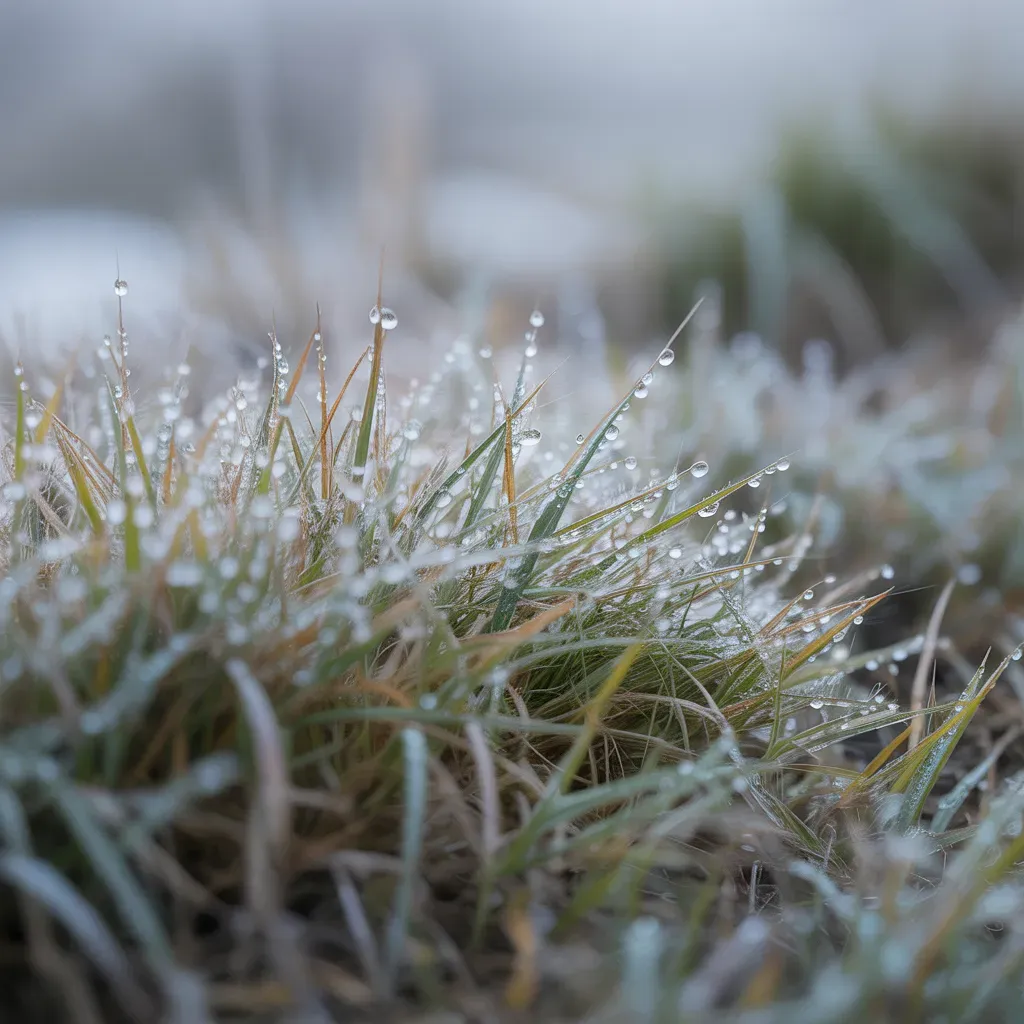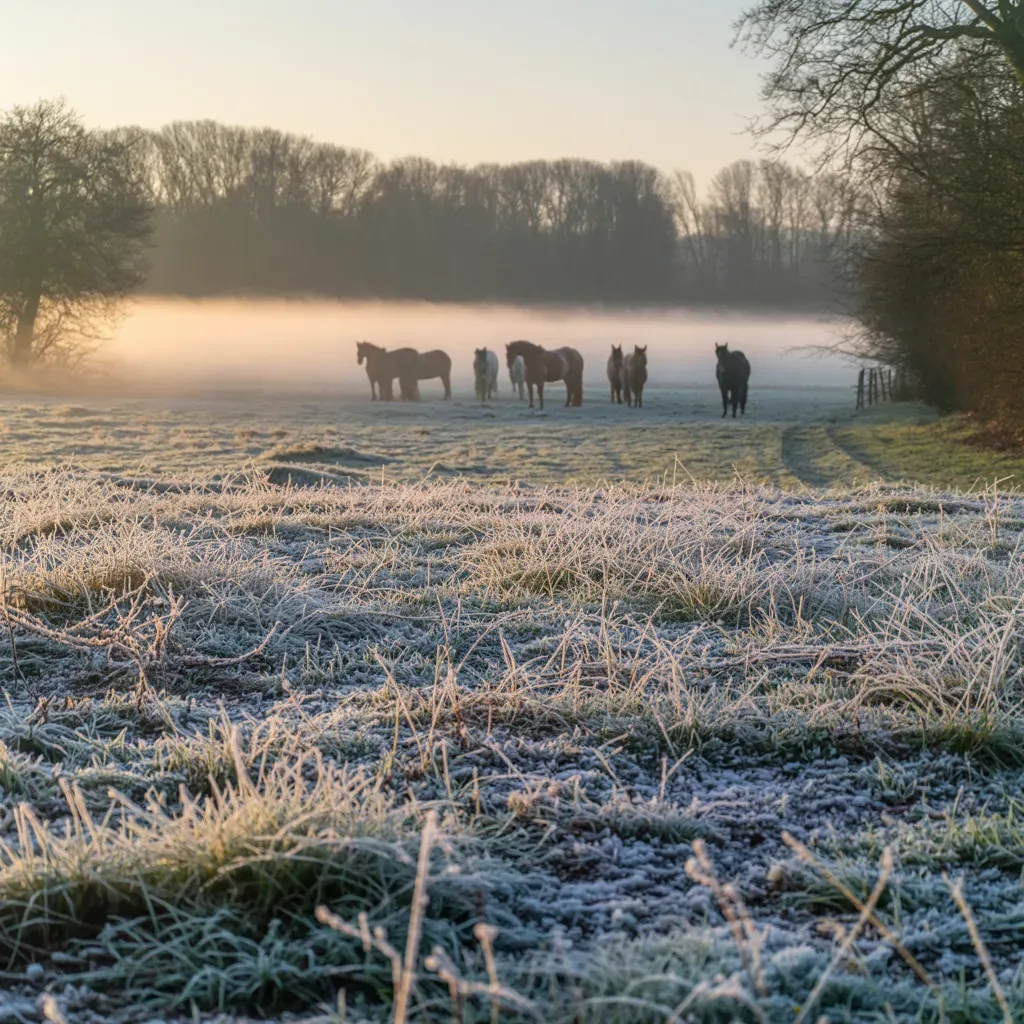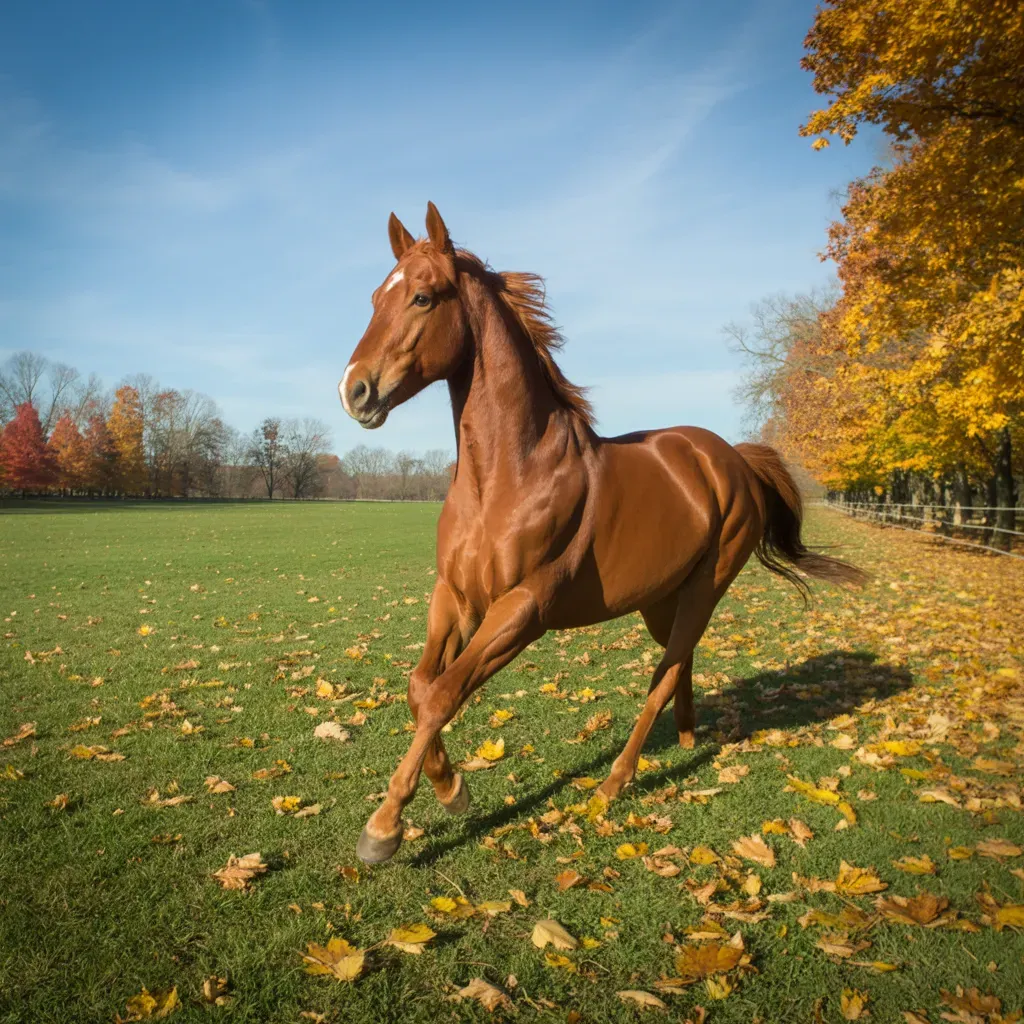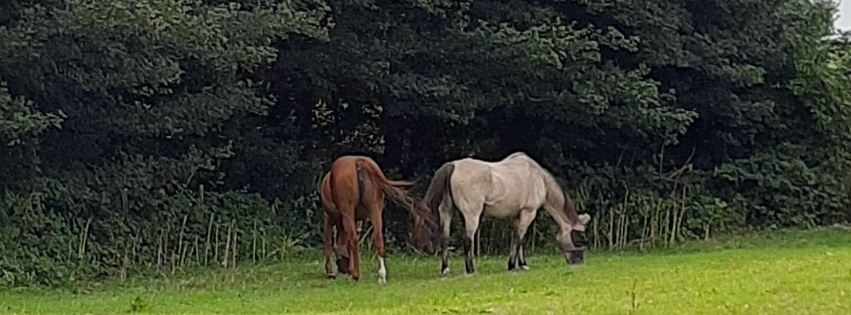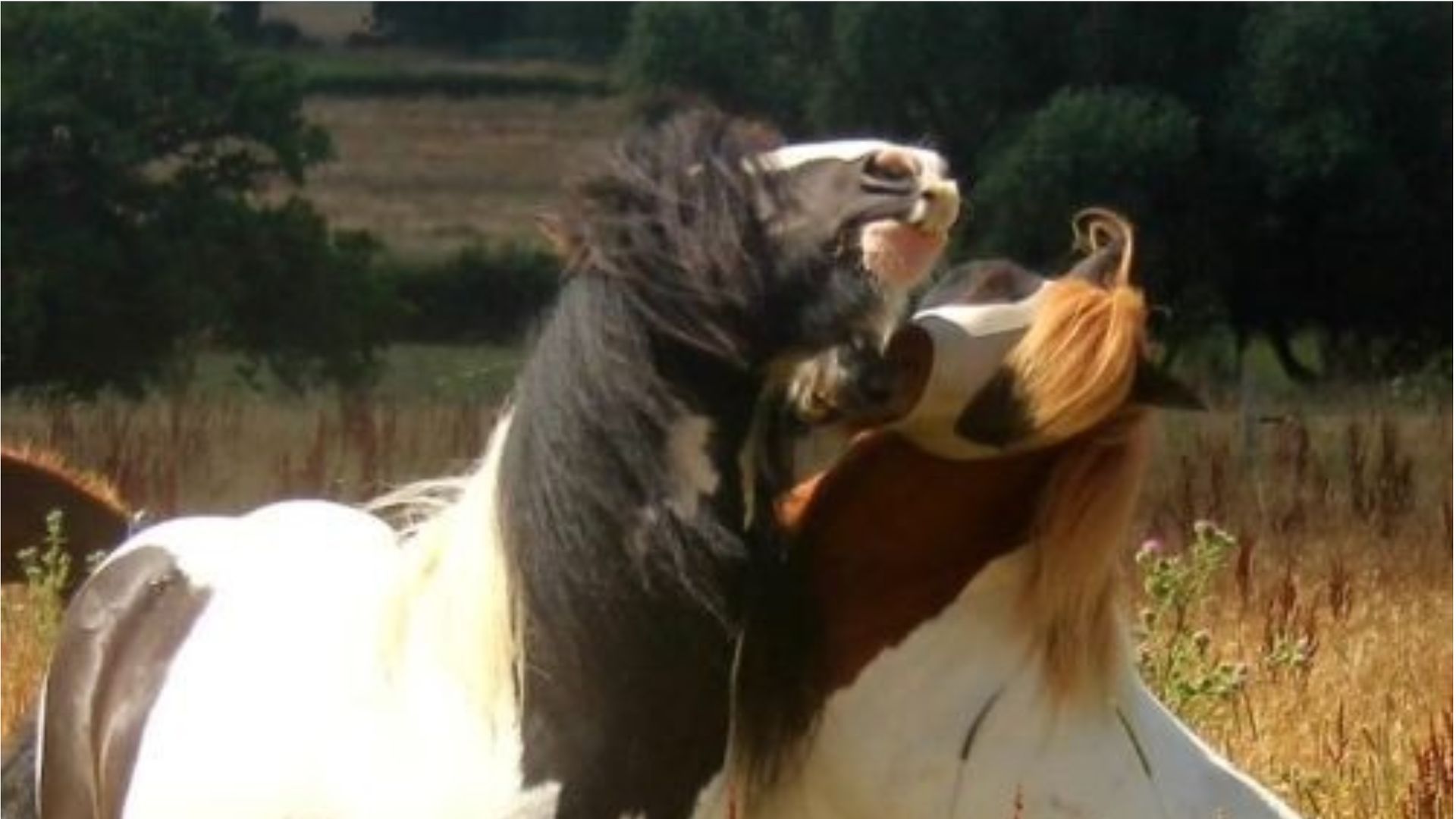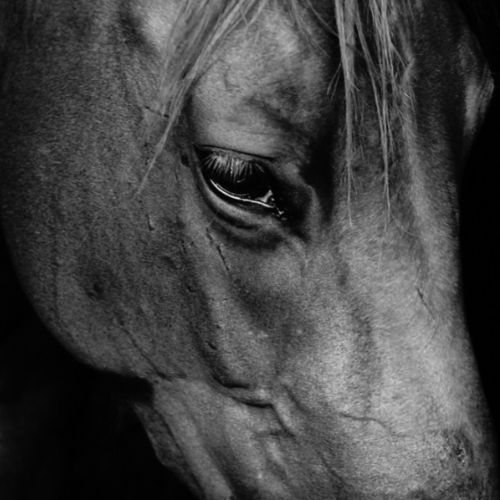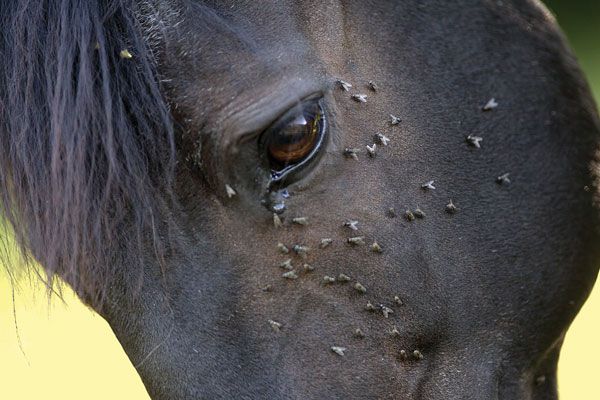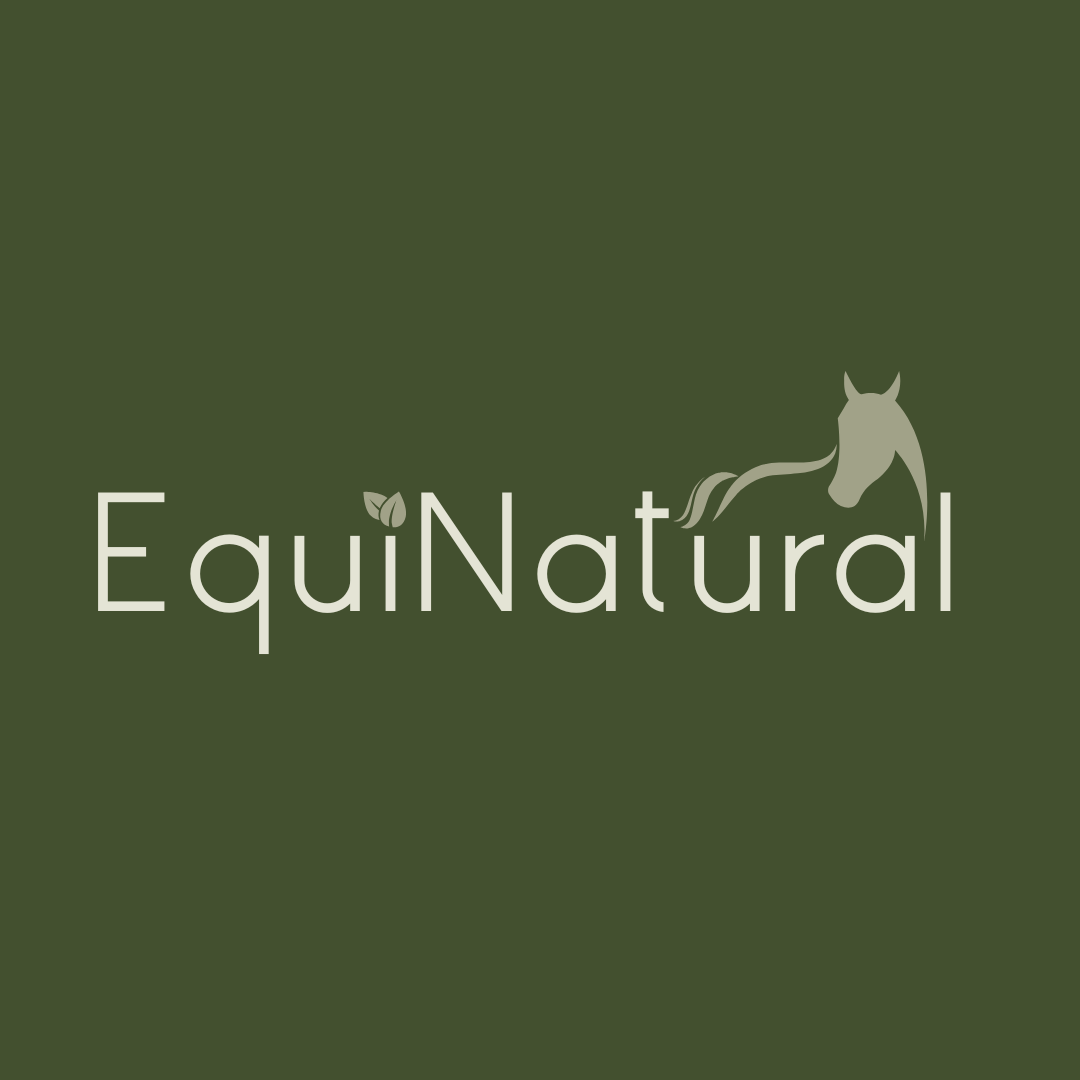When Your Mare Changes Overnight: Hormones, Herds & the Biology of Panic
When instinct takes over- how hormones, stress, and separation can turn calm mares into chaos
You know that sinking feeling when your usually lovely, gentle mare suddenly turns into a squealing, rearing, fire-breathing dragon?
One day she’s all soft eyes and nickers - the next, she’s pinning her ears, squealing at any gelding, refusing to be caught, or crashing into your personal space with hinds at the ready.
It’s frightening, and it can certainly shake your confidence. It can no doubt leave you wondering what on earth went wrong.
If you’re there right now - please know you’re not alone. What’s happening isn’t a personality change. It’s not bad behaviour. It’s biology and emotion intertwined - and once you understand what’s really going on, the whole picture starts to make sense.
I also completely understand this - I’m walking it myself with our 19yo TB mare, Carmen. After moving her from a busy yard of nearly 60 horses to just her and dear old Murf, she unravelled emotionally – pacing, calling, losing all sense of ease, and those hinds coming a little too close for comfort.
I understand this - I’m living it too
After moving our 19-year-old TB mare, Carmen, from a busy yard of nearly 60 horses to just her and dear old Murf, she unravelled emotionally - pacing, calling, losing all sense of ease, and those hinds coming a little too close for comfort.
The hormone storm
Let’s start with the obvious - hormones. And just to remind ourselves:
"Mares are entire animals – as hormonally complex as stallions."
Simple Systems (Oct'25 Newsletter)
No question - their oestrus cycles can create real biochemical changes in the body and brain.
Something else that we might not realise is that as autumn approaches and daylight fades, many mares experience one last big cycle before the winter pause. Their bodies surge with oestrogen, progesterone, and adrenaline, all preparing for the winter slow-down.
It’s pure biology. Again, they’re not being ‘difficult’ - shifting hormonal turbulence can make even the calmest mare hypersensitive, clingy, or reactive as their internal chemistry is changing gear.
How to help - think less attitude... more adrenal adjustment
- Keep her diet low in sugar and starch – high-energy feeds can amplify hormone-driven behaviour.
- Support adrenal balance and calm nervous energy with herbal support like MellowMare.
- Add Magnesium to help muscles and nerves relax.
But. Hormones are only half the story...
The biology of panic
Imagine being taken away from your home, your friends, your community – and waking up somewhere new, with unfamiliar sounds, smells, and routines. That’s exactly what happens when we move a horse to a new yard or change their companions.
In equine DNA, a herd equals survival. Horses are hardwired to feel safe only when surrounded by their herd – the eyes, ears, and bond to their buddies that keep them alive in the wild.
When that herd disappears, the horse’s nervous system sends a simple but primal message: “I don’t feel safe!”
This is biological panic. It’s not a training issue or what some call 'bad behaviour' – it’s pure instinct. The body’s survival instinct is taking charge.
That’s why you might see:
- Clinginess to one particular horse (the replacement herd)
- Calling, pacing, fence-running
- Aggression or rearing when separated
- Refusal to focus, tension, trembling
Underneath it all, your horse isn’t trying to be dominant or defiant – they’re terrified.
The Mare’s Role in Nature
It’s worth remembering: in the wild, it’s the mares - not the stallions - who lead the herd. They decide movement, safety, and grazing. They hold the emotional intelligence of the group.
This is hardwired into their DNA - whether wild or domesticated.
So when a mare loses her herd or her environment changes, she doesn’t just lose friends — she loses her role, her structure, and her sense of purpose. That’s why some mares spiral emotionally after a move or separation. They’re trying to find safety again in a world that suddenly doesn’t make sense.
The Stress Chemistry Loop
When a horse feels unsafe, her sympathetic nervous system - the fight/flight response - takes over. Adrenaline floods the bloodstream. Heart rate rises. Digestion shuts down. Logic disappears.
And here’s the crucial bit: when adrenaline dominates, calmers often can’t get through. You have to help the body feel safe first, so then the brain can follow.
That’s why layered support works best - helping body and brain exhale together:
- HarmonyTonic – grounds emotional stress and soothes grief or loneliness.
- MellowMare – regulates hormonal rhythm, calms nervous energy, steadies adrenal surges.
- Valerian – a short-term reset button for the tougher days.
- Magnesium – eases muscular and neural tension, helping switch off fight/flight chemistry.
Rebuilding safety – the real calm
Once your mare’s nervous system begins to feel safe again, the hormones will naturally stabilise and her behaviour will start to soften. But this takes time – often 2–3 months – and your consistency will matter more than any supplement or training session.
Try to:
- Work with her, not against her
- Keep her routine calm and predictable.
- Limit pressure – even pause ridden or groundwork sessions for a while.
- Offer quiet company and safe turnout.
- Reward tiny moments of relaxation.
And most importantly – be kind to yourself.
If your confidence has taken a knock, that’s okay. Fear and empathy often live side by side in good horse people. Taking a step back doesn’t mean you’ve failed – it means you’re wise enough to listen.
In summary
Your mare’s scared, hormonal, and overwhelmed – but she’s also trying her best to cope.
Help her by:
- Calming her biology - MellowMare, HarmonyTonic, Magnesium, Valerian
- Restoring her emotional safety - companionship, routine, gentle handling
- Supporting her body chemistry - a balanced, low-sugar diet
When she feels safe, her hormones, muscles, and mind will follow. And when that happens, you’ll both rediscover the calm connection that made you fall in love with her in the first place. 💛
© EquiNatural 2025. All content is original work protected under copyright, and may not be re-published, duplicated, or rewritten for commercial use without permission.

